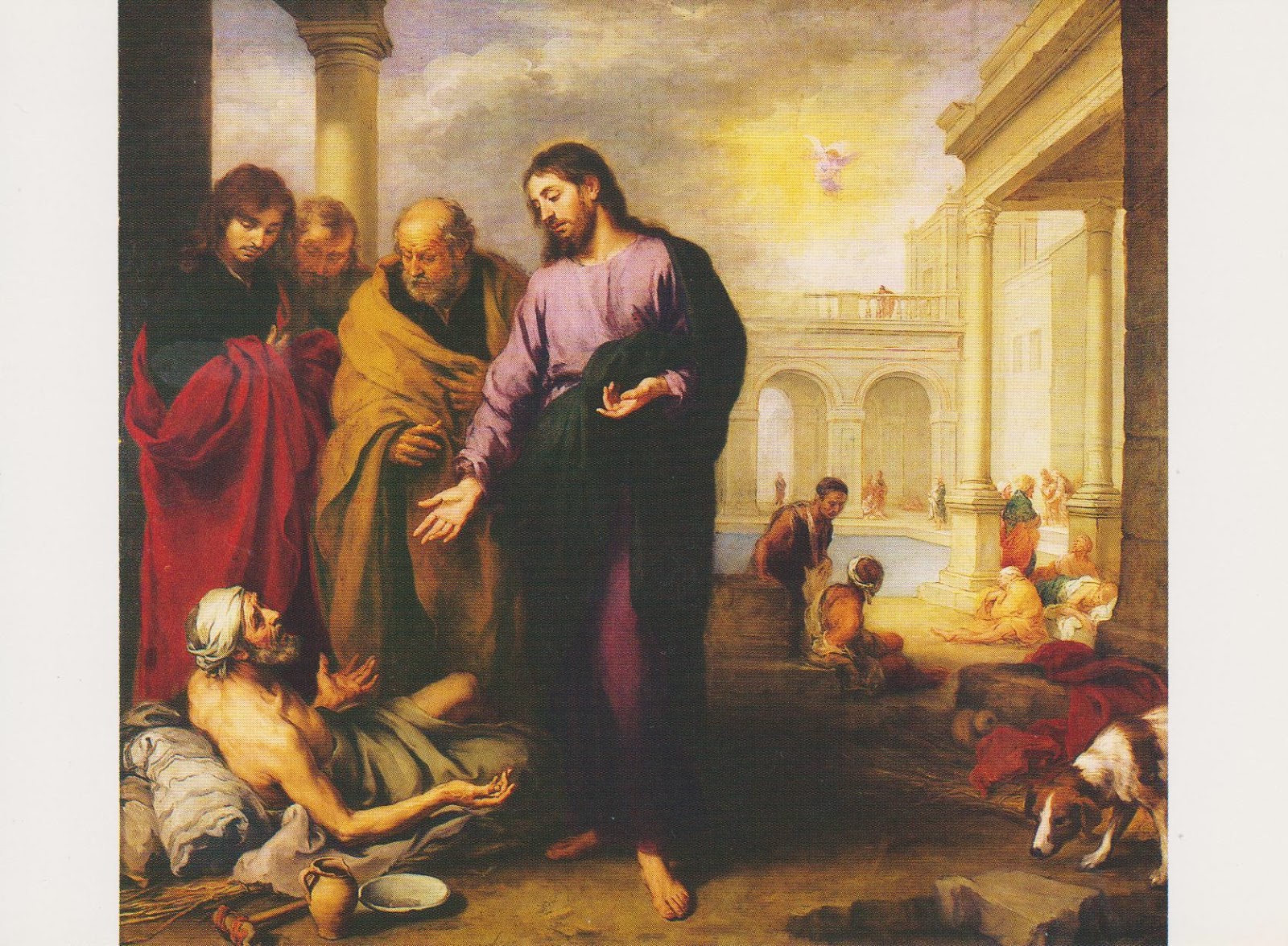4th Epiphany
John 5: 1-18
 |
| Carl Heinrich Bloch, WikiCommons |
And there was a certain man there who had been an invalid for 38 years. When Jesus saw him lying there and became aware that he had been ill for so long, he asked him,
“Do you want [have the will] to become whole?”
The invalid answered him, “Lord [Sir], I have no one to help me into the pool when the water is stirred. While I am trying to get in, someone else goes down ahead of me.”
 |
| Artus Wolffort, Wiki Commons |
However, it was the Sabbath on that day. Therefore, the Jewish leaders said to the man who was healed, “It is the Sabbath; the law forbids you to carry your pallet.”
But he replied, “The man who healed me said to me, “take up your pallet and walk!”
And they asked him, “Who is the man who said to you ‘take it up and walk’?”
But the one who was healed had no idea who it was, for Jesus had slipped away, as there was a crowd in the place.
Later, Jesus found him in the Temple and said to him, “Take to heart what I say: Behold, you have become whole. Sin no more, lest your destiny bring you something worse.”
The man went away and told the Jewish leaders that Jesus was the one who had healed him. That is why they persecuted Jesus and sought to kill him because he did these things on the Sabbath.
Then he himself countered them with the words, “Until now my Father has worked, and from now on I also work.”
Then they sought all the more to kill him, because not only had he broken the Sabbath, but also because he had called God his own Father and had set himself equal to God.
4th Epiphany
January 29, 2017
John 5: 1-18
There is a part in all of us that is like the invalid at the pool. This part suffers from a sort of paralysis, the part that cannot rightly take up our destiny and move forward with it. Our inner stuckness comes from a certain basic problem. A hindrance arises from assuming that someone else will make our destiny happen. As the invalid says, "I have no one to help me." His not being helped is made worse by the fact that all the invalids are in competition against one another for a meager resource. The healing properties of the waters suffice only for one. And so all have become naturally selfish in their hope for a cure.
There is a problem in expecting one's own insufficiencies to be overcome by someone outside of oneself. For isn't is at least as comfortably familiar to lie down under our burdens and wait? A thirty-eight-year habit of waiting!
The only Being who can supplement what we lack is Christ. And Christ asks our inner invalid, "Do you have the will to become healed and take up your pallet of destiny?"
 That the invalid suffers from a kind of weakness of will is evident also from the warning Christ gives him later in the Temple. He tells him not to allow himself to relapse into his former state, or his destiny will become even worse.
That the invalid suffers from a kind of weakness of will is evident also from the warning Christ gives him later in the Temple. He tells him not to allow himself to relapse into his former state, or his destiny will become even worse. We all set intentions and make resolutions and promises. What is spiritually important is not the resolution, but the follow-through. Every intention, every promise we make and then fail to follow through on, however small, has a negative consequence. Not only does it compromise our integrity, our inner wholeness; it also weakens our will. Best to build inner strength by keeping our intentions small and do-able.
The New Testament Greek word for sin is hamartia, missing the mark. So, in the words of Christ: "Take to heart what I say. You have become whole; sin [miss the mark] no more, lest your destiny bring you something worse.
Visit our Website!
Visit our Website!


















